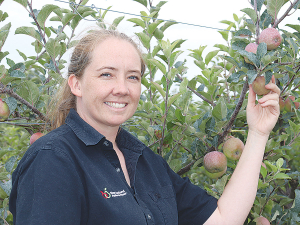This method of feeding cows has a number of advantages in terms of convenience, low wastage and the ability to control per cow intake of concentrates.
Feeding the right supplement through your in-shed feeding system will ensure you maximise milk returns and supplementary feeding profitability.
Processed maize grain is an excellent choice. Maize has a higher energy content than other grains as well as many other commonly available concentrates.
It can be used to increase cow energy intakes, delivering more milk, more milk protein and faster condition score gains.
Recent information published by DairyNZ shows that milk production is determined by the amount of energy a cow eats, but the composition of the milksolids she produces is affected by the type of supplement fed3.
When cows are fed a starch or sugar-based supplement, they produce more milk protein.
When cows are fed a fibre-based supplement, they produce more milk fat.
Since milk protein is worth two to three times more than milk fat, starch and sugar-based supplements will deliver more milk revenue than fibre-based supplements.
As well as containing more energy than other concentrates (e.g. dairy meal, other grains), maize grain has advantages for rumen health.
It has a high starch content, but virtually no soluble sugar.
Maize starch is less rapidly broken down in the rumen than other starch types.
This means there is a lower risk of acidosis (grain overload) when feeding maize grain – compared to other grains (e.g. wheat) or high sugar feeds (e.g. molasses).
Maize grain feeding rates will vary depending on the age and production level of livestock and the amount and type of other feeds in the diet.
General recommendations for cows are:
Feed a maximum of 30% of the total drymatter intake as maize grain.
Start at lower rates (e.g. 1kg maize grain per cow per day and increase feeding rates gradually over 7-10 days).
Feed a maximum of 2.5kgDM maize grain in a single feed.
Feeding rates will be lower in diets that contain other sources of carbohydrate (e.g. other grains or meals, molasses or high sugar or starch by-products).
Maize grain is an ideal supplement for pasture-fed calves and young stock promoting rapid rumen development and excellent liveweight gains. Processed maize grain can be purchased as required, from most local grain companies.
For more information on feeding maize grain talk to your local Pioneer Forage Specialist on 0800 PIONEER (0800 746 633).
Pioneer forage specialist. Contact This email address is being protected from spambots. You need JavaScript enabled to view it..
1 Feed values taken from Holmes et al. 2003. Milk Production from Pasture, Massey University, NZ.
2 Palm kernel extract
feed value from Kolver
E. 2006. PKE – Economically priced supplement. Dexcelink Autumn 2006.
3 Adapted from Roche
and Hedley, 2011 Supplements – the facts to help improve your bottom line. DairyNZ Technical Series July, 2011 p 6-10. Assumes grazing residuals of 1,500-1,600 kgDM (7-8 clicks on RPM). Responses decline when residuals are higher than 1,600 kgDM (i.e. cows are better fed).
For a full list of assumptions see http://www.dairynz.co.nz/file/fileid/37671.















